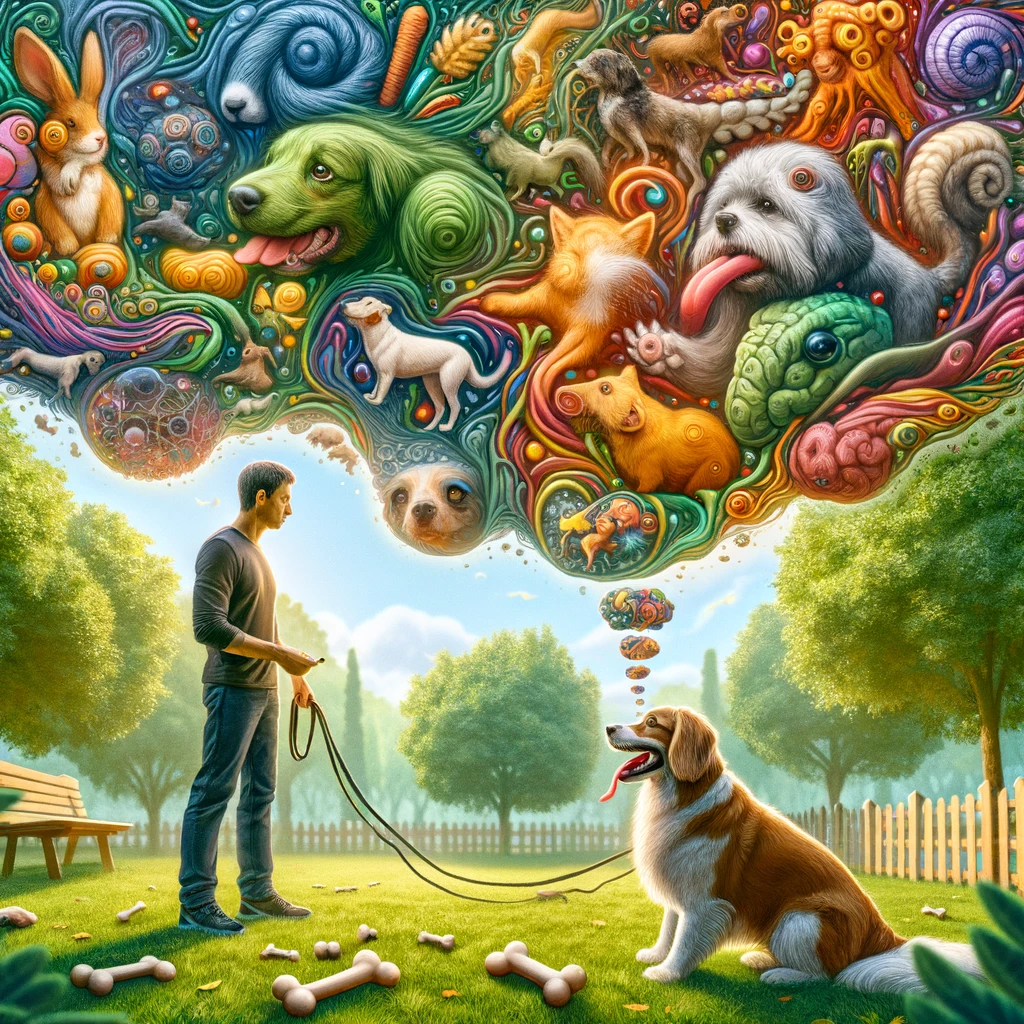Understanding Your Furry Companion: A Dog Trainer’s Perspective on Canine Identity
As a dedicated dog trainer running an obedience training business, I’ve spent countless hours observing, interacting with, and teaching our four-legged friends. One intriguing question that often comes up from dog owners is whether dogs know they are dogs or if they somehow consider themselves as part of the human pack. It’s a fascinating topic that delves into the realms of canine psychology and their perception of the world around them.
Dogs and Their Sense of Identity
Firstly, it’s essential to understand that dogs do not possess the same level of self-awareness or the ability to reflect on their existence and identity as humans do. The concept of ‘self’ as we understand it is a complex cognitive ability that is not present in dogs in the same way. However, this doesn’t mean that dogs are not aware of themselves or their surroundings. They are highly intuitive animals capable of distinguishing between different species, including humans, through various cues such as scent, behavior, and visual signals.
The Social World of Dogs
Dogs are inherently social creatures. Their survival and evolution alongside humans have equipped them with a remarkable ability to read and respond to human emotions, gestures, and commands. They understand the social hierarchy within a household and often see their human family members as part of their pack. This doesn’t mean they think they are human, but rather, they recognize the social bond and their role within this human-dog pack.
Communication and Behavior
One of the most beautiful aspects of our relationship with dogs is their ability to communicate across species lines. Dogs learn to interpret human language and gestures to a remarkable degree, and they use their body language to communicate with us in return. This interaction doesn’t imply that dogs see themselves as humans but showcases their adaptability and intelligence in navigating a human-centric world.
The Trainer’s Role in Bridging Understanding
As dog trainers, our role is to bridge the gap of understanding between dogs and their human companions. We use positive reinforcement, consistency, and patience to teach dogs how to behave in ways that are acceptable in human society. By doing so, we respect their canine nature while acknowledging their unique personalities and individual needs. We help dogs adjust to living in a human world, understanding that they are, indeed, dogs, but also valuable and beloved members of our families.
Embracing the Canine Perspective
Embracing our dogs for who they are—wonderful, intelligent, and adaptable animals, rather than expecting them to understand or navigate the world exactly as we do—is crucial. Recognizing and respecting their canine nature enriches our relationship with them, allowing us to live harmoniously and happily together.
In conclusion, while dogs may not have a conceptual understanding of themselves as ‘dogs’ in the way humans think about identity, they are adept at living in a human world, forming deep and meaningful bonds with us. As dog owners and trainers, it’s our responsibility to understand them, guide them, and provide them with the love and respect they deserve as members of our families and society.







